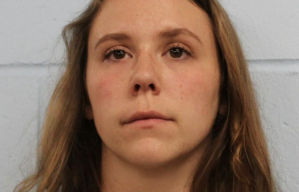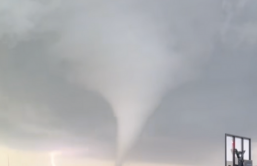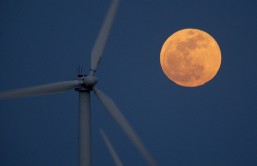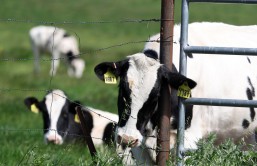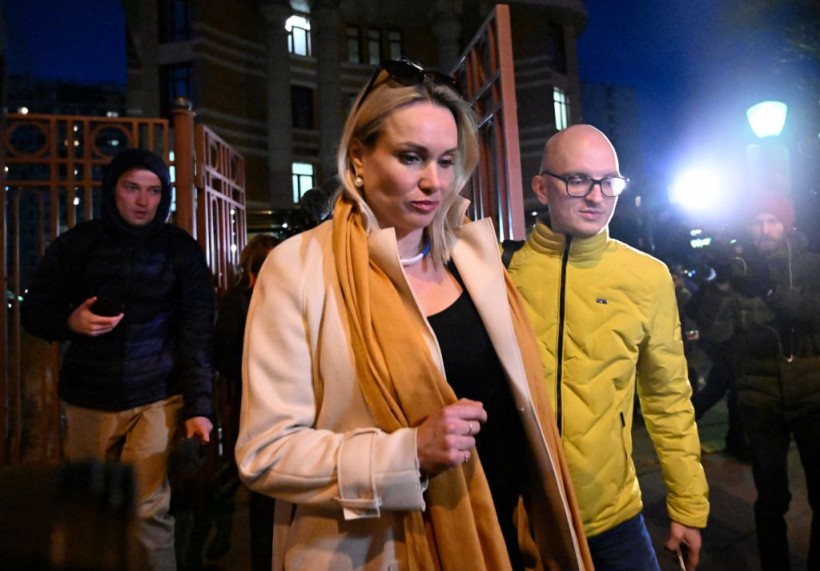
(Photo : Photo by AFP) (Photo by -/AFP via Getty Images)
A Russian journalist who disappeared after protesting on live TV against the Russia-Ukraine war has resurfaced, claiming she was interrogated for 14 hours. Marina Ovsyannikova was also charged and fined 30,000 rubles or roughly $280 for a pre-recorded video where she urged other Russians to protest against the invasion.
The Russian journalist identified as Marina Ovsyannikova who works as an editor at state-controlled Channel one has resurfaced after her disappearance following her protest against the Russia-Ukraine war on live TV.
Ovsyannikova said that he was detained after her actions on the news outlet on Monday and claims she was interrogated for 14 hours and has not slept for the last two days. She also said that authorities banned her from having access to legal assistance for her situation.
Russian Journalist
Officials have also fined the journalist for her actions that totaled 30,000 rubles, equivalent to roughly $280. Authorities also charged her with organizing an unauthorized public event, which she pleaded not guilty to.
During a pre-recorded video, Ovsyannikova urged other Russian citizens to fight against propaganda and protest against the war on Ukraine. She said that only the people of the country had the power to "stop all this madness." In her recording, the journalist said that the Russian government would not be able to imprison every single citizen, as per BBC.
In a court appearance on Tuesday, Ovsyannikova refused to retract her statement against Russia's war on Ukraine. After her protest on live TV, the journalist's whereabouts were in question before she appeared in a district court, sitting next to her lawyer.
Human rights attorney Sergei Badamshin said that the charge against the journalist stemmed not from her actions on Channel one, but from her pre-recorded video message. After her court appearance, Ovsyannikova briefly talked to journalists, expressing her gratitude for the support she had received.
According to NPR, Badamshin noted that under Russian law, police officers are barred from arresting mothers on administrative charges if their children are younger than 14. Ovsyannikova has two children, an 11-year-old and a 17-year-old. The journalist was still wearing the blue, yellow, and white necklace that she wore during her protest on Channel one.
Escalating Tensions
During a news briefing on Tuesday, Kremlin spokesman Dmitry Peskov dismissed Ovsyannikova's actions as "hooliganism" and added that Channel one, not the Kremlin, was responsible for dealing with the issue.
The journalist's act of protest has become an act of great personal risk in Russia after authorities passed a law that banned the spread of "fake news." Moscow has continued to tighten its propaganda machine regarding the war on Ukraine. Many leaders and international organizations expressed concern for Ovsyannikova's personal safety.
In an interview with reporters, Ravina Shamdasani, a spokeswoman for the UN human rights office, said that Russian authorities should ensure that Ovsyannikova does not "face any reprisals for exercising her right to freedom of expression."
A junior minister in Britain's Foreign Office, James Cleverly, said on Tuesday that the country was worried for Ovsyannikova's safety. He said that her actions showed a great degree of bravery in what is considered an authoritarian state.
French President Emmanuel Macron, on the other hand, said he would bring up the journalist's case the next time he speaks with Russian President Vladimir Putin. He said that they will launch diplomatic efforts to offer Ovsyannikova protection, either at the embassy or through asylum, the Washington Post reported.
Related Article: Russian Soldiers Admit Vladimir Putin's Ukraine Invasion Is "Terrible Mistake" After Hearing Their Air Force Bombs Public Places
